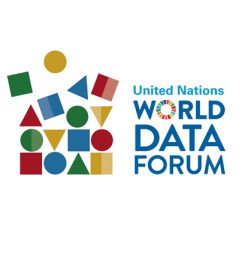Increasing trust in data and statistics
23 Oct 2018 02:00h
Event report
The moderator, Mr Rajesh Mirchandani (Chief Communications Officer, UN Foundation), started the session by inviting the panellists to share their insights on the obstacles to reliable data and statistics.
Ms Martine Durand (OECD Chief statistician and Director, Statistics and Data Directorate) set the scene by giving an overview of the topic under discussion. She gave examples of wrong or manipulated data, such as a 2013 incident when the International Monetary Fund (IMF) required that Argentina address inaccuracy in GDP data. She went on to note that a reason for distrusting data was an unreliable source. Durand said that when data is irrelevant, it may also be distrusted, hence the need for granularity in reporting data.
She recommended quality improvement to make data accurate through: following established data processing methodologies; improving metadata; being honest and responsive to data users; protecting statistical independence; and soliciting user feedback. She also called for the monitoring of trust in data.
Mr Georges-Simon Ulrich (Director-General of the Swiss Federal Statistical Office) further explored the reasons for the trust or mistrust of data. According to him, even if a data utopia was achieved – open algorithms, open knowledge and open source – there would still be a need for a critical analysis of the data. Hence, it is important to increase data literacy, so that people can question data and statistics.
Ms Shaida Badiee (Co-founder and Managing-Director, Open Data Watch) introduced the notion of the data ecosystem. She gave three fork recommendations: (a) improving organisation through better national statistical information; (b) more inclusive standards and principles; and (c) measuring the impact of data.
Ms Nnenna Nwakanma (Executive-Director, World Wide Web Foundation) linked the lack of Internet access to the digital divide in the data economy, and spoke about current statistical methods that result in irrelevant data. In one example, when collecting economic data, there was no value apportioned to the domestic work done by women, and they were therefore left out of the data results. She also called on the private sector to supplement official data to improve data driven decision making.
In addressing a question about the quality of data, Ulrich advised that data should not be collected for the sake of collection, but rather, in response to citizens’ needs. Badiee reiterated the importance of producing relevant data, while Nwakanma showed how data was linked to important aspects of life. She gave the example of data powering peaceful elections, the alleviation of poverty and improving food yields. She commended the media for telling stories that interpretted voluminous data.
According to the Swiss representative, their experience is that there is greater trust for official data; this is linked to the practice of direct democracy. The Swiss experience is different from that of other countires, such as the United States, which is ‘click’ economy driven, making web data unreliable. Durand added that trust in data correlated to trust in institutions. She made a case for independant statistics offices.
There was an audience poll with questions about trust in data. The majority thought that distrust in data was fuelled by statistics and did not relate to people’s actual experiences. This was interpreted by the panellists as being a manifestation of the lack of trust in producers and sources of data.
On the question of building trust in data, most of the audience thought that data literacy for citizens was the most effective method. Fewer voted for improved partnerships and standards and principles. The panellists recommended the disaggregation of data, as well as shedding more light on the role of different actors in the data value chain.
In conclusion, the panellists shared recommendations on priority actions for improving trust in data. These included: the development of legal frameworks to protect independence of statistics institutions; applying standards and principles in data work; production of relevant data for the public; feedback mechanisms; and opening up of data silos while also encouraging domain expertise. The role of civil society organisations in enhancing transparency and accountability of the ecosystem was also discussed. Participants learnt about the REACT framework, which encompasses rights based approaches, education, access, content and inclusion of targets.
Related topics
Related event

